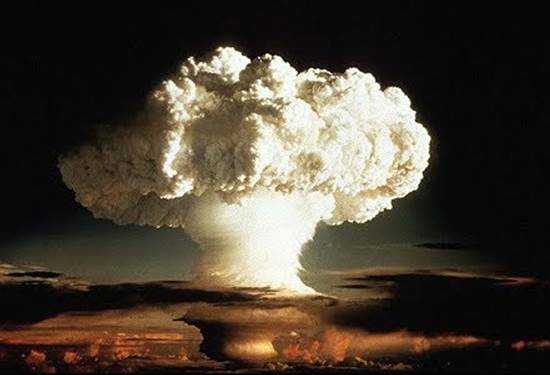Description

Copyright infringement not intended
Context: National Human Rights Commission (NHRC) chairperson Justice Arun Kumar Mishra (retd.) said India’s policy on nuclear weapons was a manifestation of its past ideology.
More on the news:
- Justice Mishra said Indian civilisational ethos was “blessed with the power of assimilation of different streams of ideas and faiths, as we want to improve and not impose our culture upon others, which may amount to violation of human rights”.
- He said the world was today facing the threat of destructive weapons, the use of which only benefitted the manufacturers of the weapons.
- India’s doctrine of nuclear policy is a manifestation of its past ideology that prohibits the use of weapons of mass destruction, which only harm humanity. It has been reflected both in the Ramayana and the Mahabharata when the use of weapons of mass destruction was prohibited.
The doctrine: India’s nuclear doctrine can be summarized as follows:
- Building and maintaining a credible minimum deterrent;
- A posture of "No First Use" nuclear weapons will only be used in retaliation against a nuclear attack on Indian territory or on Indian forces anywhere;
- Nuclear retaliation to a first strike will be massive and designed to inflict unacceptable damage.
- Nuclear retaliatory attacks can only be authorised by the civilian political leadership through the Nuclear Command Authority.
- Non-use of nuclear weapons against non-nuclear weapon states;
- However, in the event of a major attack against India, or Indian forces anywhere, by biological or chemical weapons, India will retain the option of retaliating with nuclear weapons;
- A continuance of strict controls on export of nuclear and missile related materials and technologies, participation in the Fissile Material Cutoff Treaty negotiations, and continued observance of the moratorium on nuclear tests.
- Continued commitment to the goal of a nuclear weapon free world, through global, verifiable and non-discriminatory nuclear disarmament.
Background:
- Nuclear programme of India was initiated in the late 1940s under the guidance of Homi J. Bhabha.
- India is one of the only five countries that either did not sign the NPT or signed but withdrew, thus becoming part of a list that includes Pakistan, Israel, North Korea, and South Sudan.
- India has opposed the international treaties aimed at non-proliferation since they were selectively applicable to the non-nuclear powers and legitimised the monopoly of the five nuclear weapons powers.
- The first nuclear explosion undertaken by India in May 1974. India argued that it was committed to the policy of using nuclear power only for peaceful purposes.
- India conducted a series of nuclear tests in May 1998, demonstrating its capacity to use nuclear energy for military purposes.
- After the 1998 nuclear test India also enunciated a doctrine of 'No First Use’ (NFU) of nuclear weapons.
- The doctrine was formally adopted in January, 2003.
- Since the adoption of nuclear doctrine, India has said consistently that its nuclear weapons were based on staggering and punitive retaliation, in case the deterrence has failed.
- The Nuclear Command Authority comprises a Political Council and an Executive Council. The Political Council is chaired by the Prime Minister. It is the sole body which can authorize the use of nuclear weapons.
- The Executive Council is chaired by the National Security Advisor. It provides inputs for decision making by the Nuclear Command Authority and executes the directives given to it by the Political Council.
https://epaper.thehindu.com/Home/ShareArticle?OrgId=GAJA04EOC.1&imageview=0
1.png)













